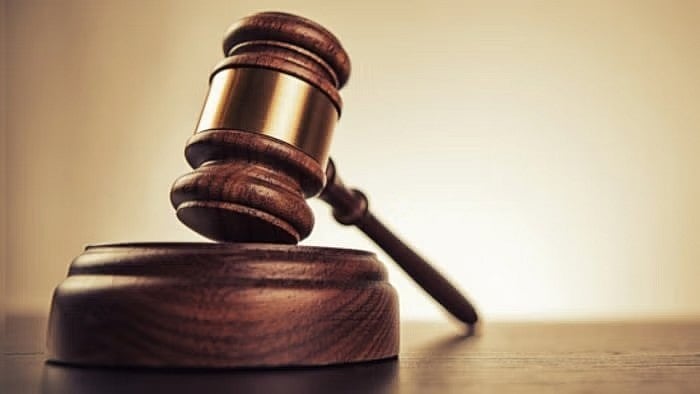
Representational photo showing a gavel.
Credit: iStock photo
New Delhi: The Supreme Court on Thursday dismissed a plea by the Telangana government against the State High Court’s decision to stay government orders which enhanced the other backward classes (OBC) quota in seats in municipalities and panchayats to 42 per cent.
A bench of Justices Vikram Nath and Sandeep Mehta declined to interfere with the High Court's order after hearing submissions from senior advocate A M Singhvi for the State government, saying it cannot take a view inconsistent with the Supreme Court judgment that has fixed the reservation ceiling at 50 per cent.
Singhvi asked the bench to indicate that it does not affect the matter listed before the High Court.
The bench agreed and said that the dismissal of the special leave petition before it will not affect the High Court in deciding the pending writ petition on its own merits.
"You may continue with your elections… (State's appeal) dismissed. The order shall not affect the High Court in deciding the case on its own merits," the bench told the counsel.
Singhvi contended that there is no rigid 50 per cent rule set by the apex court when it comes to reservations, as cited in the interim order by the High Court.
He submitted that there was a misconception that the ruling by the apex court in the Indra Sawhney case (1992) (Mandal Commission by a nine-judge bench) established a rigid 50 per cent cap on reservations for backward classes in all cases.
The bench observed that the Gawali judgment did not allow reservations to exceed 50 per cent. Singhvi said it was a policy decision, and a unanimous resolution of all parties supports it.
“Why did you have to bring out a government order to implement what you have sought by your exercise…Gawali (judgment) says nothing beyond 50 per cent,” the bench said, adding that even consideration of empirical data does not allow the government to go beyond 50 per cent reservation.
It was argued before the bench that the analysis of empirical evidence indicates that the backward classes continue to remain relatively lagging.
Singhvi contended that if the court were to hold that there is an absolute 50 per cent cap on reservation, then what is to be done in a State where the OBC population exceeds 70 per cent?
Singhvi urged the bench to entertain the larger issue of whether the 50 per cent ceiling can be exceeded. He said otherwise, the court may be laying down an inflexible rule of 50 per cent for the entire country.
Singhvi contended that the judgment allows this ceiling to be breached in exceptional circumstances. However, the counsel could not convince the court.
On October 9, the Telangana High Court issued an interim stay order against a government order providing 42 per cent OBC reservation in local body polls. The court directed the State Election Commission to notify the proportionate seats as open category seats and proceed with the elections.
The court stayed government order no 9, and consequential government orders no 41 and 42 in this regard. Following the court's stay order, the Telangana State Election Commission issued a statement saying the poll notification was issued on September 29. and further activities were being suspended until further notification.
The court further said that any quota increase for OBCs should be within the framework of the "triple test", a framework for providing reservations for OBCs in local body elections. The triple test for OBC quota hike stipulates that States form a commission to collect data, specify the reservation proportion based on the commission's findings, and ensure the total reservation for SCs, STs, and OBCs does not exceed 50 per cent of the total seats.
